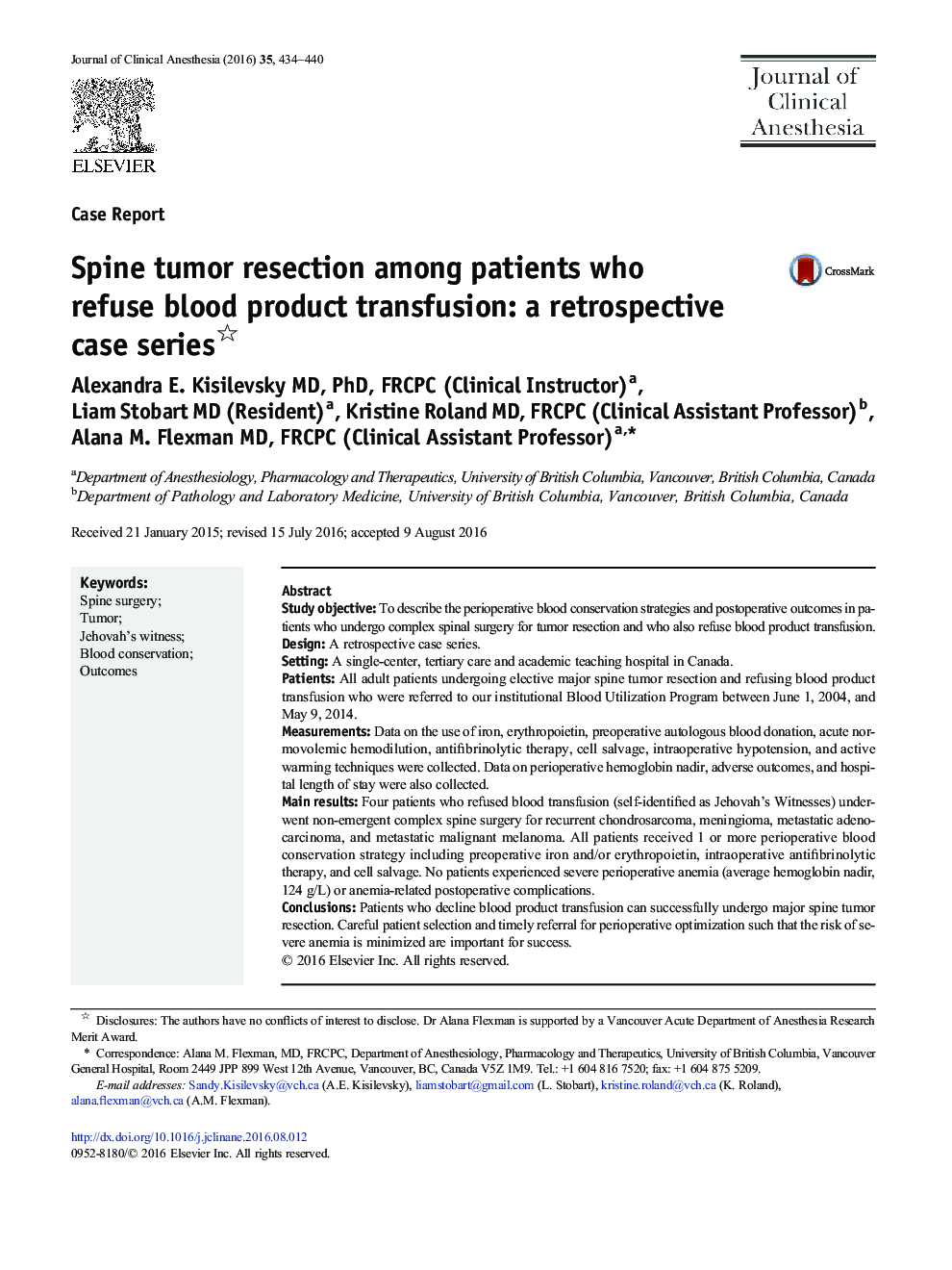| Article ID | Journal | Published Year | Pages | File Type |
|---|---|---|---|---|
| 5884403 | Journal of Clinical Anesthesia | 2016 | 7 Pages |
â¢Patients who refuse blood transfusion can successfully undergo major spine tumor resection.â¢Patient selection and timely referral for optimization are important for success.â¢No patient experienced severe anemia during the perioperative period.
Study objectiveTo describe the perioperative blood conservation strategies and postoperative outcomes in patients who undergo complex spinal surgery for tumor resection and who also refuse blood product transfusion.DesignA retrospective case series.SettingA single-center, tertiary care and academic teaching hospital in Canada.PatientsAll adult patients undergoing elective major spine tumor resection and refusing blood product transfusion who were referred to our institutional Blood Utilization Program between June 1, 2004, and May 9, 2014.MeasurementsData on the use of iron, erythropoietin, preoperative autologous blood donation, acute normovolemic hemodilution, antifibrinolytic therapy, cell salvage, intraoperative hypotension, and active warming techniques were collected. Data on perioperative hemoglobin nadir, adverse outcomes, and hospital length of stay were also collected.Main resultsFour patients who refused blood transfusion (self-identified as Jehovah's Witnesses) underwent non-emergent complex spine surgery for recurrent chondrosarcoma, meningioma, metastatic adenocarcinoma, and metastatic malignant melanoma. All patients received 1 or more perioperative blood conservation strategy including preoperative iron and/or erythropoietin, intraoperative antifibrinolytic therapy, and cell salvage. No patients experienced severe perioperative anemia (average hemoglobin nadir, 124 g/L) or anemia-related postoperative complications.ConclusionsPatients who decline blood product transfusion can successfully undergo major spine tumor resection. Careful patient selection and timely referral for perioperative optimization such that the risk of severe anemia is minimized are important for success.
